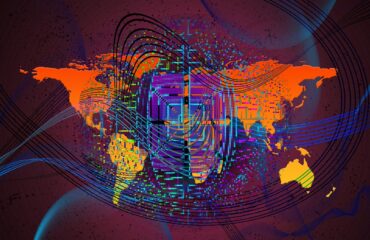Inflation. War. Poverty. The climate crisis. Disease. When these and other problems continue to plague humanity on Earth, why do we go to so much time, effort, and expense to explore the cosmos?

Edward White, the first American in Space (1965, NASA)
As the James Webb Telescope (JWST) has just begun to deliver stunningly clear infrared images of some of the earliest light in our 13.8-billion-year-old universe, we might ask whether the nearly $10 billion spent to build the JWST is worth it. What philosophy was in play, in dedicating these funds and time since 1996 to conceive and develop the technology of the JWST? Why do we explore the universe, and why have we done so since the invention of telescopes in the time of Galileo (1564-1642)?
- Galileo’s telescope, housed at the Galileo Museum in Florence.
- Galileo’s telescope schematic in Sidereus Nuncius, 1610.
More than Just Money
To be sure, there is now an economic return on investment in space exploration. If the investment had not been made, satellite communication and global positioning systems would have been impossible. Without these, the internet, precise navigation, and weather forecasting – on which world economies now rely – wouldn’t exist.
NASA, the United States’ space agency, points to 49 technologies developed for space exploration that have become essential to living and today’s economies. Among these are:
- Strong, lightweight materials used in aircraft and automobiles
- Advances in medical technologies in areas such as cancer therapy, eye surgery and pharmaceutical research
- Industrial robotics that increase production efficiencies, and
- Environmental technologies for water purification, solar panels, increased farming yields, and more.
Estimates of economic benefits over time are notoriously subjective, and prone not only to overestimation but also underestimation. An advance that might seem minor for a current application might turn out to be pivotal for future uses that are difficult or impossible to foresee.
The internet, which has transformed our daily living, is a famous example of an underestimated future technology.
No one predicted the far-reaching changes of the internet before the technology exploded little more than twenty years ago. To witness underestimation, watch this 1995 interview of personal computer pioneer and Microsoft founder Bill Gates by comedian and late-night show host David Letterman.
“I can remember a couple of months ago there was a big breakthrough announcement that on the internet or on some computer deal they were going to broadcast a baseball game,” Letterman says. “You could listen to a baseball game on your computer, and I just thought to myself, ‘Does radio ring a bell?’” The audience laughs before Gates points out the difference that on a computer you can listen to the game whenever you want, to which Letterman jokes, “Do tape recorders ring a bell?” More laughter ensues, but of course the radio and tape recording technologies then prevalent are now fading, thanks to the internet.
A Window Onto The Future

Observing Earth from the International Space Station (NASA)
The thinking in 1995 may seem naïve – no one foresaw the dominance of e-mail, messaging, online shopping, search engines, or social media and political polarization which seem obvious now – but are we any better today at seeing the future than we were in 1995?
We might stop to question what the future holds, and the many different paths today’s technological choices can take years down the road. Where do the future probabilities lie? Will their potential be limited to Earth, which is only one of a countless number of planets in the two trillion or more galaxies we now know exist in the observable universe? What mysteries of the universe will be unlocked by our evolving computing power – in dark matter, quantum mechanics, black holes, and other areas – and how will that knowledge change our technology of the future?
As Letterman asks near the end of the 1995 interview segment, “Is there something now beyond what we understand about computers? Like twenty years ago we didn’t understand computers, is there now another level of something, maybe we haven’t even thought of it, maybe it’s not possible, maybe a whole different mechanism, a whole different software and hardware, or is this going to be it now through the end of time?”
Twenty-seven years later we know the answer to Letterman’s questions, that 1995 was only the beginning of computing and certainly not its end in time. Imagining ahead twenty-seven years, in 2049 how will people look back on the state of space exploration technology in 2022 and our ability to foresee its consequences?
Having experienced the rapid pace of change brought on by the internet and computing for nearly three decades, it should be less difficult in 2022 to imagine the acceleration of technology’s transformative power in the years ahead. But if we are to learn from history and the predictions made in 1995, the only certainty we have is that the direction of future innovation and invention will be uncertain. As the power of the internet and computers increases, for example with the quantum computer now under development, we can’t possibly foresee all their possibilities and potential for time to come. But with greater knowledge of how the universe operates we open a window onto time, allowing us to extend our predictions further into the future and thereby reduce our margin for error.
Our Destiny In The Stars
We live in a universe of uncertainty. As Kurt Godel’s incompleteness theorems and Werner Heisenberg’s uncertainty principle have proven, it is mathematically and physically impossible to theorize or know all future outcomes of an action taken in the present. To avoid unanticipated consequences, survival therefore depends on our ability to estimate the probabilities of the future and to adjust our estimates for differences that arise over time.
Consider that we humans are part of nature, and the universe is the sum of all of nature’s probabilities. From this perspective, the more we know about the origin of the universe and its sequences of events, the more we will know about our own evolution and probabilities in time.
Life began in the stars.

Mars Rover selfie (NASA)
In the past century, space exploration has proven that every atom in our bodies is, in fact, the product of an explosion of a star. Space exploration has also proven that not all stars will explode; smaller stars such as our Sun will expand to red giants and then compress to become white dwarfs. Stellar explosions are called supernovas, which occur when a star’s mass exceeds the Chandrasekhar limit. The limit is named after Subrahmanyan Chandrasekhar, the scientist who applied knowledge of mathematics, physics, and data from cosmic observations to determine the masses of stars that will explode and release all of the elements required to build humans, planets, and everything else.
Stars have even been connected to time. Since their periodicity is remarkably regular, the light of specific stars – such as the pulsars emitted by neutron stars and the pulsations of Cepheid variable stars – are now used by scientists to measure time on a cosmic scale.
By examining the lives of stars, space exploration opens a window onto time for humanity. If you think of time as the sequence of causes and their effects from period to period, does it not make sense to begin our inquiry into the future by looking back in time to the earliest causes? Starting at the cosmic microwave background, which is the furthest we can see in time to the first 300,000 years of the life of the universe, we can trace the time of the universe – the sum of all probabilities for 13.8 billion years – by following the light of the stars.
Light is energy, and so what will the energy reveal? What is it that causes the actions and reactions of physics that drive our bodies and everything else on Earth? What are neutrinos, the tiny particles produced in the Sun’s fusion of hydrogen into helium, and what information do they carry as they flow through our bodies at the rate of 100 billion per square centimetre per second? Why is there a black hole at the centre of every galaxy, and what does it cause?
Philosophy In The Search for Something Greater

Galaxy M33 from the Spitzer Space Telescope and Galaxy Evolution Explorer (NASA)
Our existence, and our questions, began in the stars and there the answers are waiting to be found. Space exploration will help to answer not only these fundamental questions and many more, but will continue to shine a light on the destiny of humanity and our technology for time to come.
Human survival and advancement requires knowledge, which is our best defence against the uncertainties of time that are inherent in the nature of the universe. Philosophy, from the Greek roots of the word, is “love of knowledge” or “love of wisdom”. The scientists now probing the mysteries of the universe are philosophers, as any of us is capable of being.
No one chooses to hate knowledge, although some are misled to confuse hateful opinion for knowledge. Is there a limit to knowledge? If there is, no human past or present has reached such a limit, and it is certainly uncertain that anyone should ever do so.
Like knowledge, it is difficult to imagine a limit to the universe. If it has an end, the universe would have to end “at” some thing other than that which the universe is, which would necessarily be a thing that has an existence of its own somehow excluded from the universe. But if the universe is the sum of all probability, as the word “uni”verse implies, the only possible limit would be its opposite “improbability”, which we would define in a circular reference to probability itself.
What is the greatest probability that we can imagine? Is our attempt to imagine the greatest of all probabilities at the core of the philosophy of space exploration? If knowledge of the greatest probability reduces uncertainty and opens the widest window to see our future, then the philosophy that leads us to explore space seems not only logical but also wise.





